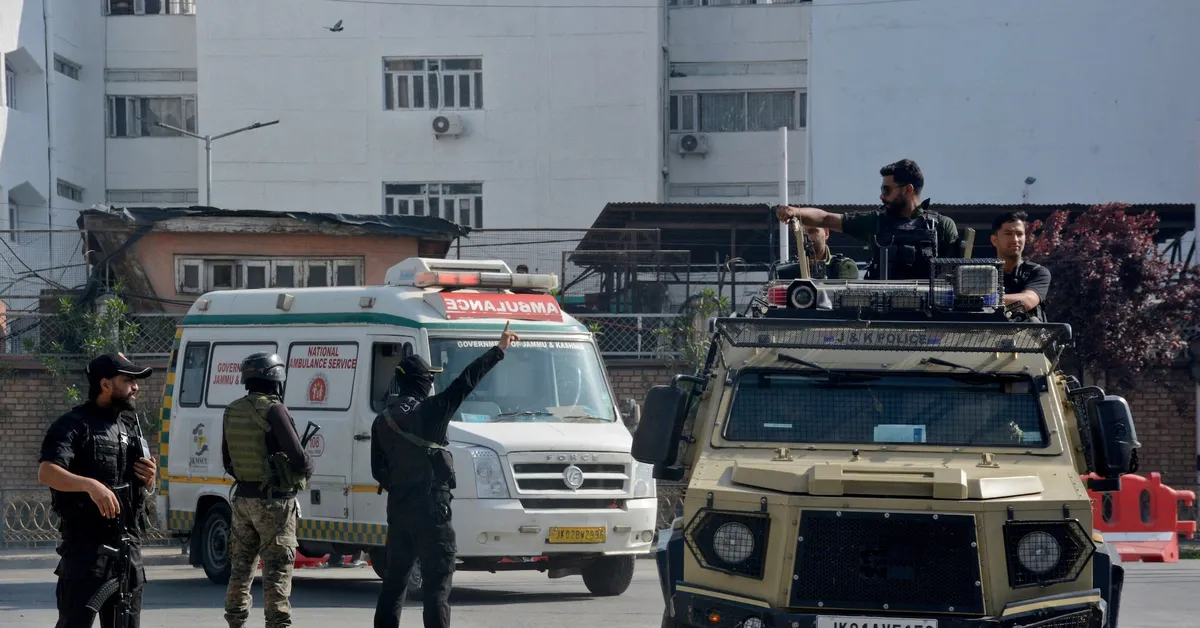
In a devastating incident that has shocked the nation, twenty-six people were tragically killed and seventeen others injured when suspected militants opened fire on tourists in the scenic region of Jammu and Kashmir, India. This attack, which occurred on April 22, marks one of the worst assaults on civilians in the territory in nearly two decades, according to local police.
The attack took place in a picturesque meadow in the Pahalgam area, a popular destination for tourists exploring the breathtaking beauty of the Himalayan federal territory. Among the deceased were 25 Indian nationals and one individual from Nepal, highlighting the tragic impact of the violence on both local and foreign visitors.
In response to this tragic event, Prime Minister Narendra Modi hastily cut short his two-day visit to Saudi Arabia, returning to New Delhi on Wednesday morning. Finance Minister Nirmala Sitharaman also abbreviated her trip to the United States and Peru to provide support during this challenging time. Upon his return, Modi convened a meeting with the national security adviser, the foreign minister, and other senior officials at the airport. A special security cabinet meeting was scheduled for 0530 GMT to address the ongoing situation.
A little-known militant group, the Kashmir Resistance, claimed responsibility for this heinous attack via a social media post. The group expressed dissatisfaction with the settlement of over 85,000 outsiders in the region, which they argue has led to significant demographic changes. Indian security agencies associate the Kashmir Resistance with Pakistan-based militant organizations, including Lashkar-e-Taiba and Hizbul Mujahideen. In a statement, the Pakistani foreign ministry expressed condolences and concern over the loss of tourist lives, asserting that Pakistan only provides moral support to the insurgency in Kashmir.
In the aftermath of the attack, numerous local organizations called for a shutdown across the federal territory to protest against the violence targeting tourists, who play a vital role in the local economy. Many schools suspended classes for the day, reflecting the collective grief and anger of the community.
As a result of the attack, airlines began operating extra flights from Srinagar, the summer capital of Jammu and Kashmir, as tourists rushed to leave the region. The primary highway connecting Srinagar to the rest of India was damaged due to heavy rainfall and was closed for repairs, further increasing demand for flights. To facilitate the evacuation, four special flights were arranged—two to Delhi and two to Mumbai—with additional flights on standby to accommodate any further needs, as announced by Aviation Minister Rammohan Naidu Kinjarapu.
The region of Kashmir has a long history of militant violence, particularly since the anti-Indian insurgency began in 1989. This conflict has claimed tens of thousands of lives, although violence has decreased in recent years. In 2019, India revoked Kashmir's special status, dividing the state into two federally administered territories: Jammu and Kashmir, and Ladakh. This decision allowed local authorities to grant domicile rights to outsiders, enabling them to secure jobs and purchase land in the territory, a move that has exacerbated tensions with Pakistan, which also claims the region.
Attacks targeting tourists in Kashmir have been relatively uncommon. The last significant incident occurred in June 2024, when a militant attack caused a bus carrying Hindu pilgrims to plunge into a gorge, resulting in the deaths of at least nine individuals and injuries to 33 others. The recent attack, however, has raised alarms about the safety of tourists in the region and the potential implications for the local economy.
As the situation continues to develop, it is essential for both local and international communities to remain vigilant and supportive of the affected families during this tragic time.